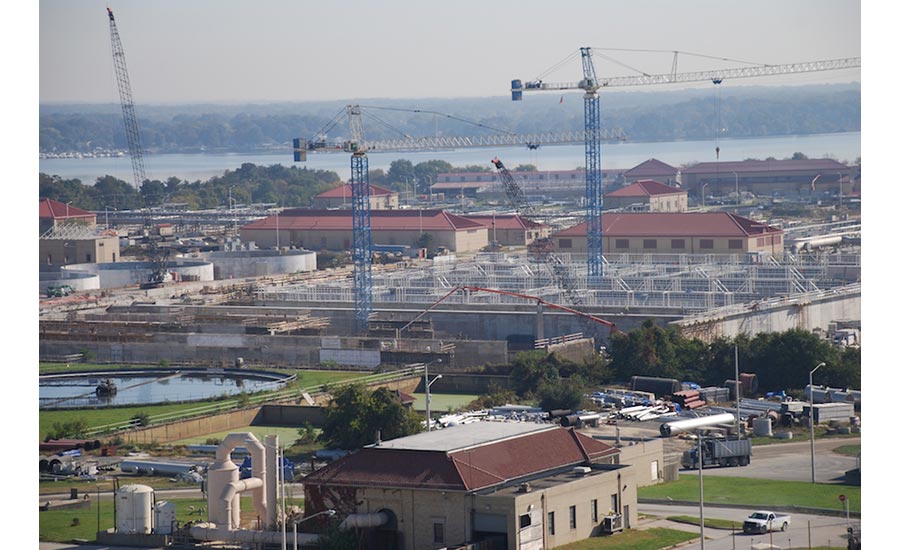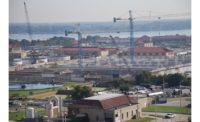A consent decree to rehabilitate Baltimore’s century-old sewer system has been endorsed by a federal judge, clearing the way for a $1.6 billion strategy to stop millions of gallons of wastewater from leaking into the city’s Inner Harbor and the Chesapeake Bay within the next 13 years.
The plan aims to achieve infrastructure improvements that were not completed as scheduled under Baltimore’s 2002 consent decree with the U.S. Environmental Protection Agency. Although all but a handful of combined sewage outflows were closed over the past decade as part of the original plan, hydraulic flow issues prevent a key 12-in sewage main from fully emptying, resulting near-daily overflows and backups in many neighborhoods.
Baltimore will now have until 2021 to complete major upgrades to its Back River Wastewater Treatment Plant, including a $430 million headworks project begun this summer by the joint venture of Clark Construction, Bethesda, Md., and Ulliman-Schutte, Miamisburg, Ohio. The new system of four 1,000-hp pumps are expected to eliminate 80% of the city’s current sanitary sewage overflow volume. Baltimore must also inspect and replace sewage mains and complete other infrastructure projects by 2030.





